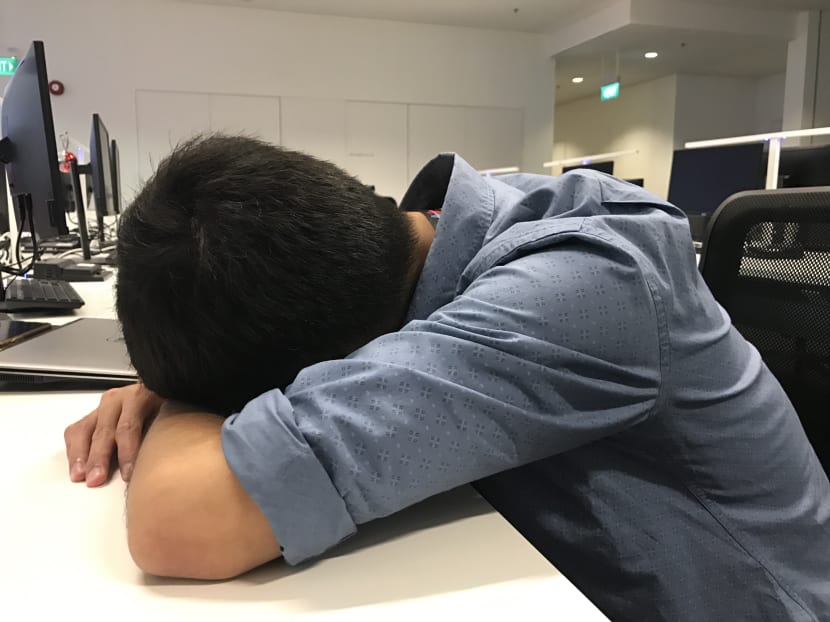Singaporeans among poorest of sleepers in the world: Fitbit data
SINGAPORE — Singaporeans are among the poorest sleepers in the world, clocking in an average of just 6.56 hours of sleep per night. according to data collected by fitness-tracking firm Fitbit.
SINGAPORE — Singaporeans are among the poorest sleepers in the world, clocking in an average of just 6.56 hours of sleep per night. according to data collected by fitness-tracking firm Fitbit.
Only the Japanese and Indians sleep less than Singaporeans, while New Zealanders clock in the most amount of sleep with an average of 7.25 hours a night, Fitbit’s findings showed.
The data, which was released ahead of World Sleep Day on Friday (March 17), was compiled from anonymous and aggregated data from its users from 18 countries between January to December last year.
Other Asian countries like Hong Kong, Korea and Taiwan were also near the bottom, while the top were dominated by European countries and Australia. In Singapore, Fitbit currently holds an 85 per cent market share for activity trackers, according to market research institute GFK.
The Fitbit findings generally correspond with two other studies published recently.
The first study, conducted by University of Michigan scientists last year, found that Singaporeans were the worst sleepers in the world — tied with the Japanese. The University of Michigan study, which tracked sleep patterns in 100 countries, found Singaporeans had an average of seven hours and 24 minutes of sleep in a day.
And in January this year, a study by SingHealth Polyclinics found that 44 per cent of Singaporeans have insufficient sleep on weekdays. The study defines sleep insufficiency as having less than seven hours of sleep a day.
The SingHealth study covered 350 adult Singapore citizens and permanent residents from various ethnic groups aged 21 to 80, who visited two polyclinics in 2015. It found that insufficient sleep during weekdays was significantly associated with the use of digital devices, home environment, employment status, and consumption habits.
SingHealth warned that insufficient sleep can increase the risk of mental, cardiovascular and metabolic diseases. Some common ailments associated with lack of sleep include obesity, diabetes and hypertension, according to the US Centres for Disease Control and Prevention.










